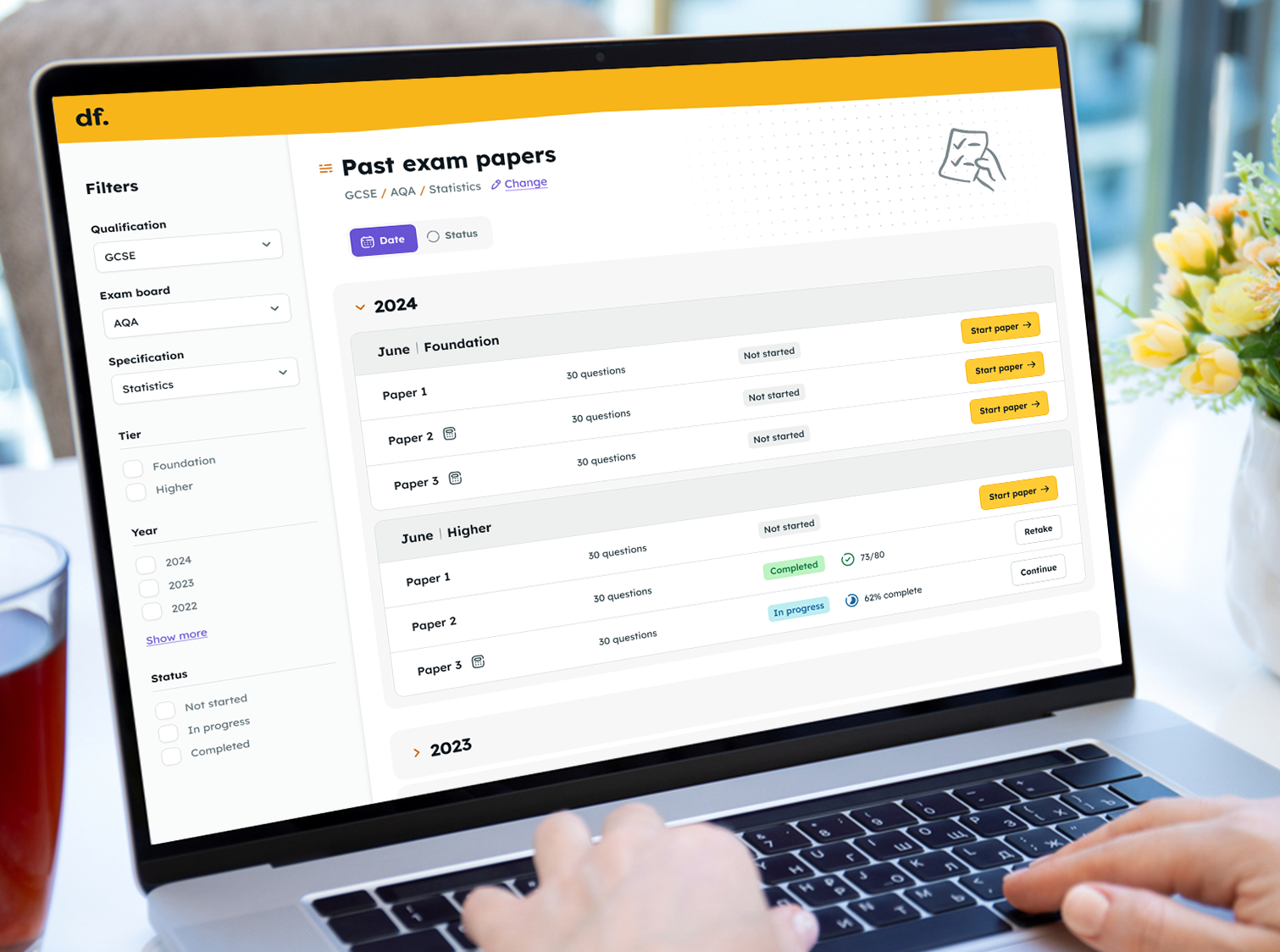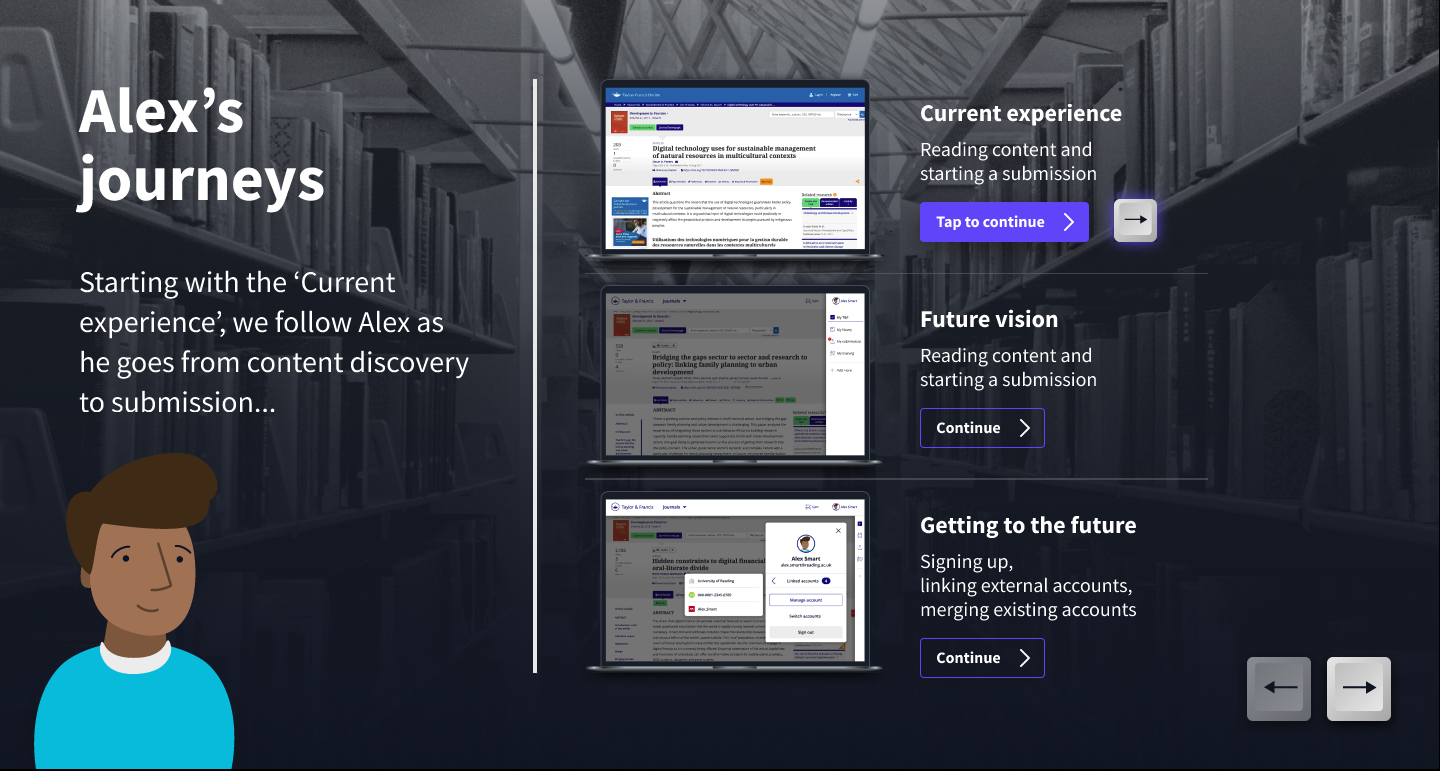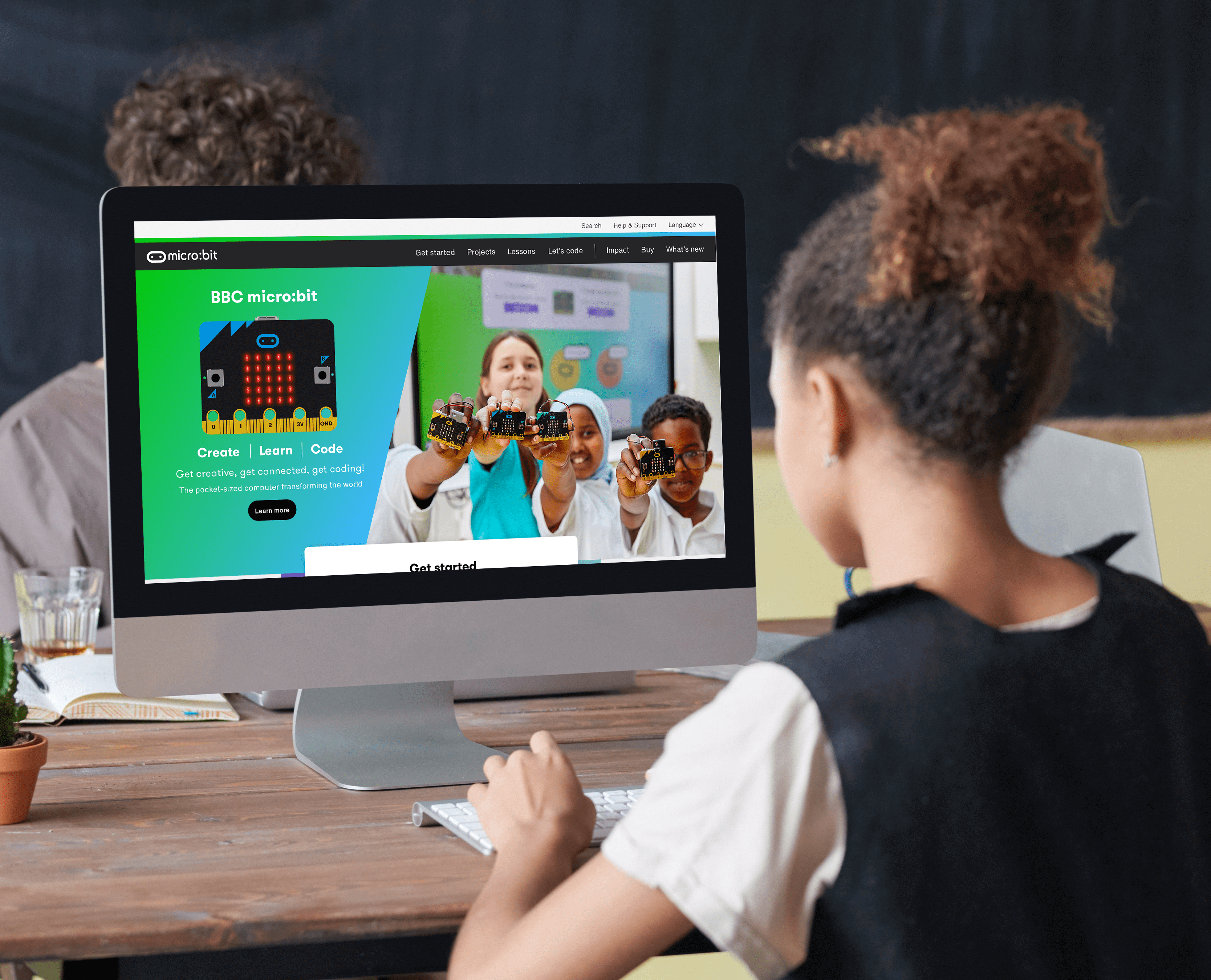What they needed
Dr Frost Learning approached Fruto for support in improving the usability and overall user experience of their platform. With a growing user base and an expanding feature set, the team saw a clear need to become more user-centred in how they designed and delivered their product. Key journeys, such as registration, subscriptions, and exam revision, were becoming increasingly complex, presenting opportunities to reduce friction and better support users at scale.
A newly appointed product manager, experienced in working with UX teams, recognised this as a turning point: the platform needed structured user insight, user-centred design processes, and scalable UX solutions. Although the team had previously delivered significant functionality without in-house design support, they now needed a strategic partner to help prioritise improvements, deliver hands-on UX and UI design, and embed user-centred thinking into the product.
What we did for them
User research & UX review
Our partnership with Dr Frost Learning began with a focused UX expert review, designed to provide a clear, evidence-based understanding of how real users experience the platform. As an external team, we offered a fresh and unbiased perspective, drawing on deep experience in user-centred design and a strong understanding of the digital tools used in educational settings.
Grounded in real classroom contexts
To ensure product decisions were grounded in real-world insight, we conducted qualitative usability testing with secondary school teachers, ranging from early-career educators to experienced department leads. These participants came from diverse educational environments, including selective schools and alternative provision settings, providing us with a well-rounded view of how the platform performed across varying teaching contexts.
Each session was structured around realistic teaching scenarios:
Creating worksheets
Setting homework
Finding appropriate resources
Reviewing class or individual progress.
We observed how teachers navigated these journeys, identified friction points, and noted where workarounds had become routine.
Measuring usability
To benchmark usability more formally, we paired the qualitative research with a System Usability Scale (SUS) assessment. This provided a quantifiable baseline for user satisfaction, helping the team track improvements over time.
Clear, actionable recommendations
Our findings were captured in a clear and prioritised report, highlighting not only the issues but the ‘why’ behind them. This level of detail helped the Dr Frost team move beyond surface-level fixes and address root causes. Alongside the report, we offered practical advice on building user feedback mechanisms into their development cycle, enabling the team to continue making user-informed improvements independently.
By combining user empathy with a structured research process, we helped establish a culture of continuous improvement, anchored in real classroom experiences and focused on what matters most to teachers and students.
Embedded UX partnership
Following the initial research phase, we transitioned into an ongoing UX and UI Design retainer, working as an embedded part of the Dr Frost Learning team. This model allowed us to collaborate closely and flexibly on a range of initiatives, from improving high-priority user journeys to introducing design practices that could scale with the platform’s growth.
Throughout the partnership, we supported the team on multiple projects. These included redesigns of the GCSE revision, registration, and subscription flow, as well as introducing a scalable design system foundation.
One standout initiative was the redesign of the student revision experience in preparation for the GCSE season.
GCSE exam revision
This project aimed to simplify navigation and increase engagement. Our focus was on reducing cognitive load and making it easier for students to stay on track with their revision goals, through:
Streamlined entry points via banners and dashboards
Improved clarity and filtering of content
Focused layout designed for goal-oriented study
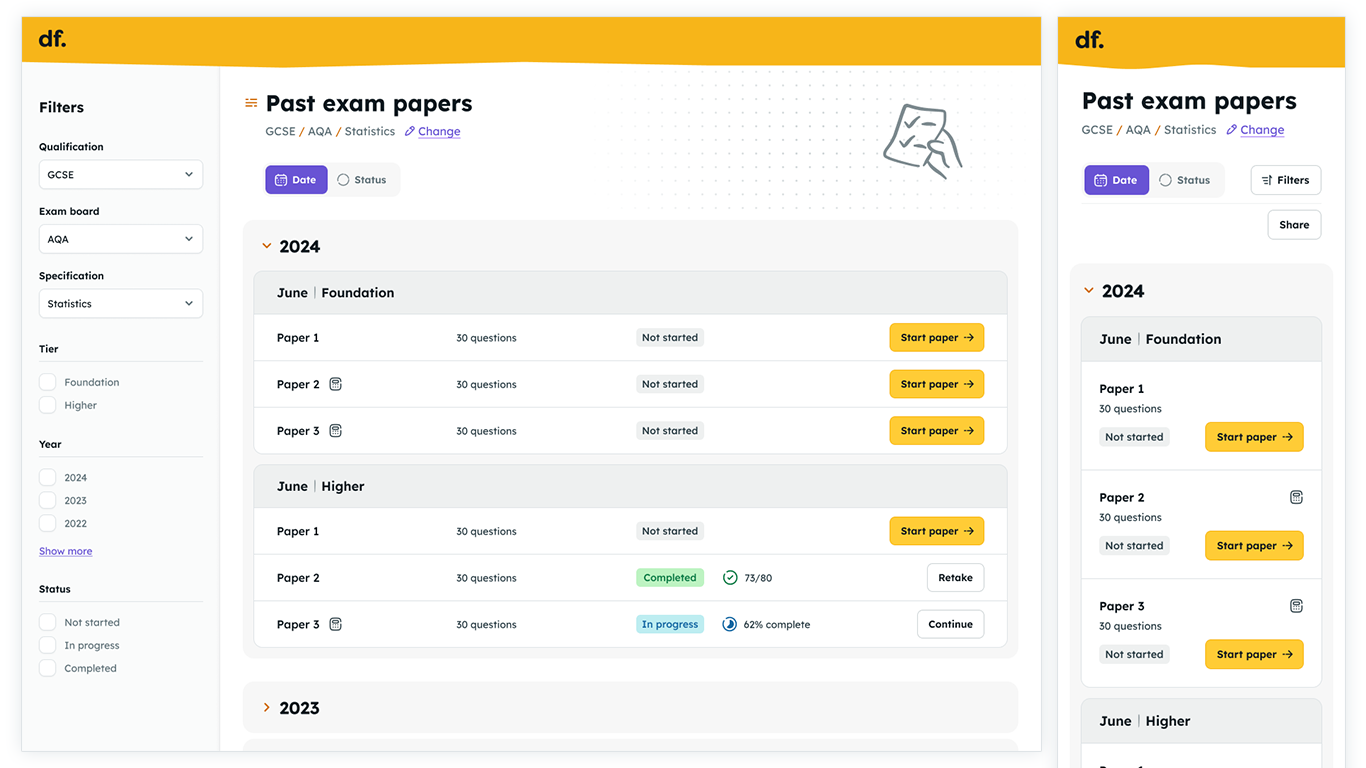
Design system foundations
We introduced a scalable design system to support consistent, efficient development:
Created a modern UI aligned with the new brand
Built reusable components based on real project needs
Provided clear guidance for developers to mirror in code
In embedded partnerships like this, we operate as part of the team. We attend weekly stand-ups, engage in asynchronous collaboration, and proactively identify and address UX opportunities and blockers. Our role goes beyond delivering designs. We help shape priorities and strategic direction, and bring a design perspective into everyday decision-making. We balance quick wins with long-term design thinking, ensuring that every improvement contributes to a more cohesive, scalable user experience.
This integrated approach enabled the Dr Frost team to move faster and more confidently, while building shared understanding of UX priorities and how to deliver them effectively as a team.
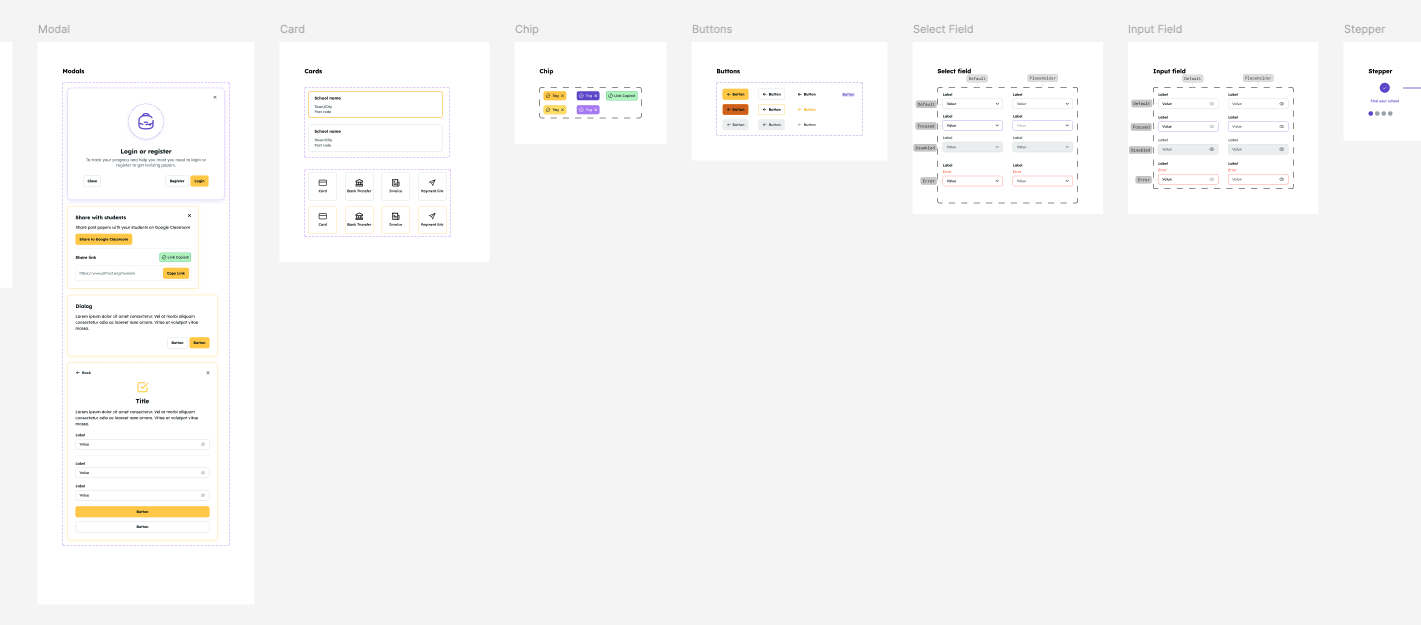
Results
In a fast-growing EdTech sector, platforms like Dr Frost Learning play a vital role in helping teachers deliver high-quality education and helping students develop the skills they need to succeed. This work focused on reducing friction, unlocking access, and enabling schools and students worldwide to maximise the benefits of a platform they rely on. That means less time lost to admin, better insight for schools, and more effective maths support for learners.
We’re proud to have played a role in helping the Dr Frost team deliver that impact.
GCSE exam revision
420,000 exam revision practice sessions undertaken by students in just 3 months
Platform-wide impact
More efficient product delivery
Scalable, brand-aligned design system
Stronger internal alignment around UX priorities
Fruto’s usability research gave us the evidence we needed to truly understand our users’ pain points. Their work supported a shift from intuition-led decisions to an evidence-informed, user-centred approach. As Product Manager, I’ve especially valued how their research-driven mindset helped embed user needs into our everyday thinking - the strong adoption of our new GCSE revision tool is a testament to that.
